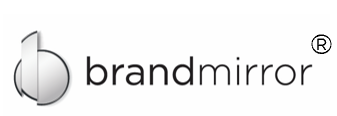On September 8, 2018, the US Open Women’s Finals tennis match was held between Serena Williams and Naomi Osaka. The match was umpired by Carlos Ramos. In the course of the match, Ramos issued a warning for a coaching violation; then a one-point penalty for racket abuse; and finally, upon deeming verbal abuse as Williams’s third code violation, docked her a game. Ultimately, Osaka won the match, but the talk was all focused on Williams and Ramos, and whether, as Williams asserted, sexism played a role in the penalties issued against her. There were three people on the court that day, and each of them demonstrated some important lessons for personal brand management.
Composure Wins Points
Composure in the face of a trying situation is never easy, but it is a crucial way to present yourself. Just 20 years old, Osaka was faced with playing against someone thought by many to be the world’s greatest athlete; not to mention her hero. Instead of a match between the two, the insertion of the umpire’s penalties and William’s reactions to the Ramos created an incredible additional amount of negative pressure for the young player. Osaka maintained her composure. She, of all of the people involved in the match, has garnered universal sympathy and praise. Her refusal to act out, and her heartfelt statements upon winning were perfect examples of the positive effect composure can have on your brand.
Whether you believe her justified or not, Williams struggled with her composure in the face of Ramos’ penalties. The most intense criticism of Williams has surrounded her outrage. In the moment, she spoke her truth, but her message was lost in the emotional intensity of her behavior. However, in the award ceremony and in subsequent interviews, when Williams had a chance to regain her composure, her message became all the more powerful.
Escalation Never Helps
When a situation becomes negative, there is always a choice about how to handle it. Both Ramos and Williams engaged with one another in the increasingly heated moments of the match. Williams, believing herself to be wronged, could not let go of the unfairness she saw in the situation. Her mounting outrage, justified or not, egged Ramos on to further penalties, and, some thought, lost her the match. Rather than ignore the outbursts, provide reasonable warning of consequences, or otherwise deescalate the situation, Ramos continued to engage with Williams. Regardless of whether you think Williams behaved appropriately, Ramos came across as petty, arbitrary and unfair.
Speak Your Truth
Sometimes you have to speak your truth to keep your brand authentic. Much has been written and said about the debacle of the match. Opinions are divided over whether Williams behaved appropriately, whether the penalties were valid and whether there is truth to Williams’ assertion that the penalties were a symptom of sexism and racism in professional tennis. Her actions and statements have subjected her to a great deal of criticism, and, no doubt, her reputation has diminished in some parts. However, the reality is that there will come times in your life that you have to draw a line and stand by it. Williams saw an injustice; not just to herself; but to women generally in the world of professional tennis. While her initial response was pure emotion, once she had the opportunity to take a breath, she did not apologize for speaking her truth. Instead, she doubled down and spoke poignantly and persuasively about a wrong that has victimized her.
Williams and Osaka both demonstrated some compelling lessons about how to present in the professional world, particularly as women. Too often, women are subjected to small aggressions and slights that interfere with their ability to be fully engaged in the workplace. A great example is interruptions. Women frequently find themselves interrupted by men during meetings. Taking the lessons of the US Open, retaining grace and composure if you can can prevent the incident from turning against you. However, it is ok — in fact it is vital — to call out the problem as it happens. Say something firm, yet polite like, “Gosh, I hadn’t finished my thought,” and then proceed with your point. This sort of statement makes no accusations, but speaks to your truth, and takes an affirmative step to reclaim your legitimate place in the discussion.
Jen Dalton, CEO of BrandMirror, has over 15 years of experience in strategy, marketing, and coaching. In 2012, she made a gutsy move into the entrepreneurship space, launching her branding business and became a certified master personal branding strategist. She specializes in building your digital thought leadership on LinkedIn and other social media. You can find her bestselling book, The Intentional Entrepreneur, on Amazon, which highlights how business owners can leverage their personal brand to grow their business faster.

